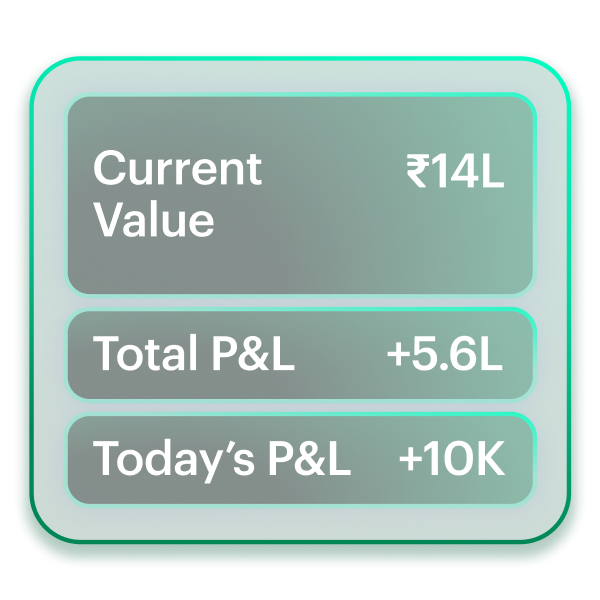Last Updated on Apr 6, 2021 by Manonmayi
Well, the Tata vs Mistry rift goes back to 3 years when the latter was dismissed as chairman of Tata Sons without justification. Ever since the face-off, the feud between the two has only aggravated. This boardroom drama of India’s one of the largest conglomerates, which has deep roots, has been influenced by a series of sour events that heated up things between the two.
But before we delve into the depths of the feud, here is a brief on Cyrus Mistry, Tata Sons, and Tata Trusts to give some background.
Table of Contents
Tata Group and Tata Sons are not the same
Tata Sons is the holding company of the Tata Group, an Indian salt-to-software conglomerate. It comprises more than 100 companies that have a collective revenue of over $100 billion.
Tata Trusts and the mighty power that they possess
The Tata Trusts were created by the founders to carry out philanthropy activities. Yet, these trusts hold most of the founders’ inherited personal wealth and possess a 66% control of Tata Sons. This shows how very powerful Tata trusts are, so much so that these bodies were given special powers to nominate, approve, and remove a chairman of the Tata Sons.
The Pallonji’s, Tata’s, and Cyrus Mistry
Cyrus belongs to the Pallonji family, which is also a business family like the Tata’s. Their connection dates back to 1930s, when Shapoorji Mistry, Cyrus’s grandfather bought a stake in Tata Sons. The stake, which is equal to 18.37%, is now held by Cyrus’ father and is the largest stock held by a single party in the company.
The familial ties between Pallonji and Tata
Cyrus Mistry is a well-known businessman holding Irish citizenship. He is the younger son of Pallonji Mistry, an Indian billionaire and construction giant, and also the brother-in-law of Noel Tata, Ratan Tata’s half-brother (which kinda explains the boardroom drama?). Mistry headed the Tata Group from 2012 to 2016 in the capacities of chairman and director of various group entities.
He was the 6th chairman of Tata Group and only the 2nd one to not have the surname, Tata. Cyrus holds a stake of 18.4% in Tata Sons through Cyrus Investments Pvt. Ltd, which makes him a minority shareholder. And that is what the feud is about, according to him: to protect the interest of minority shareholders and ensure the success of Tata Group.
Trajectory of Cyrus’s tenure in the Tata Group
- Mistry joined the board of Tata Sons on 1st September 2006
- Mistry served as a Director of Tata Power Co. Ltd. till 18th September 2006
- He served as a Director of Tata Elxsi Ltd from 24th September 1990 to 26th October 2009
- He assumed the duties of a chairman of Tata Sons in 2013 (he was also the chairman of other Tata companies such as Tata Industries, Tata Motors, Tata Global Beverages, Tata Consultancy Services, Indian Hotels)
- The board of Tata Sons voted to remove Mistry from the chairmanship of Tata Sons on 24th October 2016.
Why was Cyrus Mistry dismissed as the Chairman of the Tata Group Companies?
According to Tata Sons, Cyrus Mistry was dismissed based on not one but several allegations which are as follows:
Proposal to fund Rs. 10cr to Odisha poll
The rift goes back to 2014 when the Odisha assembly elections were held. The state had a fair bit of Tata’s iron ore deposits, which prompted a close advisor to Cyrus to propose funding the state election polls. However, in practice, Tata Sons only funds parliamentary polls and not state elections, which is why the clash arose.
On the flip side, Mistry’s allies revealed that there was a discussion held, after which it was unanimously decided that the decision of funding (or not) state elections was up to the respective Tata company. They also added that companies could only fund the poll while abiding by the principles that applied to the Electoral Trust.
Naturally, Ratan Tata’s nominees were not happy about the suggestion and despite the board declining the proposal, Ratan Tata was fairly unhappy about the idea.
Two bids from one conglomerate
The second time around, Ratan Tata was disappointed by Cyrus when Tata Group, as a single conglomerate, made two bids for an army contract. The bid, which was for 2,600 Future Infantry Combat Vehicles, was worth Rs. 60,000cr.
Out of the two bids, one was made by Tata Power Strategic Equipment Division (SED) jointly with Titagarh Wagons and the other was made by Tata Motors in a joint venture with Bharat Forge. However, Ratan Tata opined making two separate bids from a company as big as the Tata would not reflect well upon the company’s image.
On the other hand, Cyrus’s aides regarded Ratan Tata’s reasoning as interference and believed that Mistry did what he had to do to create a potentially win-win situation for both the companies. The allies also mentioned that Cyrus didn’t favour one company over another. Instead, he was impartial towards the independence of boards and shareholders of both the companies.
The reporting of Tata Power-Welspun deal
The Tata vs Cyrus feud worsened when the former alleged the latter had failed to discuss the Tata Power-Welspun deal with Tata Sons’ board. This, he said, was a breach of the articles of association (A/A) as the deal size required the holding company’s approval, which wasn’t taken. However, Cyrus’s aides begged to differ and said that Ratan Tata was aware of the details of the deal, which were disclosed to the board of Tata Power and approved.
They also added that Tata Sons’ board knew about the Welspun deal before it went out in the press. In defence, a Ratan Tata confidant said that Tata Power had not followed the due processes to seal a deal as per the group rules. Ideally, Tata Power should have circulated a board of resolution or circular, but they only sent information about the deal.
The QSR fight
The proposal for a fast-food tie-up with Little Caesars, a US pizza chain further added fuel to the ongoing fire. Ratan Tata disliked the idea and opined that other Tata entities could deal with a proposal of such a nature. But Mistry’s allies reasoned that the idea of Little Caesar’s was not wrong considering Tata had already tied-up with Starbucks, a coffee chain. They also revealed that during a board discussion of Tata Sons held in 2016, it was agreed to explore the QSR (quick service restaurants) market as a growth opportunity.
To this, Tata’s allies say that the tie-up with Starbucks was different from the current one as it belonged to group entities such as Tata Coffee and Tata Global Beverages, which already had a large presence in the area. Pizza, however, was a different business altogether.
Way to deal with workers
Ratan Tata was also not happy with Cyrus Mistry’s approach to other subjects including the way he dealt with workers. Tata believed that employees shared a strong emotional connection with ‘Tata’, the brand. That is why, he said, the best way to address worker’s issues was not to communicate from far-off places but speaking to them in person.
Tata-Docomo and Japan Inc
Remember Docomo? Yes, Ratan Tata was ready to seal the deal with Docomo and had asked Cyrus to deposit Rs 8,000cr with the Delhi High Court. However, things went sour when one of Japan Inc’s core members informed Tata that all wasn’t well and there were some issues in Japan.
At this point, Ratan Tata thought it important to intervene and solve the issues, which Mistry’s allies took as his interference. They backed Cyrus saying that Tata’s solutions were illegal and that Mistry was doing the right thing while abiding by the legalities. But, Tata’s aides believed that Mistry should have come up with a solution together with the government, which he didn’t.
What happened after Cyrus was dismissed?
After ousting Cyrus, Ratan Tata took charge as the interim chairman until a few months later, when Tata Sons welcomed its new Chairman, N Chandrasekaran. Later, in a letter addressed to the media, Mistry questioned the corporate governance practices of the company and revealed that Tata Group’s net worth had severely declined, which lead to an $18 billion-write-off.
Weeks later, Tata Group responded in a statement explaining that Cyrus was dismissed because of his inability to enhance the conglomerate’s fortunes and his decisions to sell assets that were performing badly. And the Tata’s had no chill.
They called for emergency general meetings of the 4 companies with an agenda of stripping Cyrus off his position as chairman and director. But Mistry didn’t give up and refused to resign as a director of various Tata companies. He also remained chairman at 4 Tata Group publicly listed companies namely Tata Power, Tata Motors, Tata Chemicals, and Indian Hotels.
The regulators and government stance
The escalating boardroom drama of one of the country’s largest conglomerate’s boardroom caught the attention of regulators and the government. Here’s what they did to protect the shareholder’s interest:
- The stock exchanges have sent notices to several Tata Group companies seeking clarification
- SEBI is keeping an eye on all the developments happening in Tata Group to take action should a corporate governance issues arise
- The finance ministry has asked various financial institutions such as banks and LIC of India to watch the conglomerate’s moves
2018 National Company Law Appellate Tribunal (NCLAT) verdict
The NCLT, in July 2018, issued a verdict that charged Cyrus Mistry of mismanagement. In response to this, Mistry declared that he would appeal to the Tribunal for justice.
Recent developments to the Tata Vs Mistry case
Recently, in a surprise ruling on 18th December 2019, the NCLAT changed its stance and declared that the appointment of N Chandrasekaran as the executive chairman was illegal, which restored Mistry of his position. This development further added to the dramatic rift between Mistry and Ratan Tata.
Cyrus Mistry resigned from 6 Tata companies
That the NCLAT had favoured Cyrus this time around would have dampened the fire but it didn’t. News of 4 major Tata Group companies (namely Indian Hotels, Tata Motors, Tata Steel, and Tata Chemicals) holding extraordinary general meetings surfaced. The motive to hold these meetings was to request the removal of Mistry from the boards.
Cyrus Mistry finally threw the towel and resigned from 6 key Tata companies affiliated with the group. A disappointed Mistry then revealed his plans to reach out to the court of law citing that it was an important step to secure the interests of the Tata Group as a whole.
Meanwhile, an unrelenting Ratan Tata moved the Supreme Court in his personal capacity and challenged the NCLAT’s 2018 judgment. Allegedly, Ratan Tata said that Mistry wasn’t attentive enough to Tata Group as he was reluctant to let his family business alone, which, he said lead to a conflict of interest.
Supreme Court stand’s with the NCLAT
Recently, the Supreme Court (SC), Cyrus Mistry demanded two board seats. However, SC declined the demand and declared that it agreed with NCLAT’s ruling of reinstating Cyrus Mistry as Chairman.
- Top Large Cap Funds 2025: Discover Blue Chip Performers - Mar 27, 2025
- Gilt Funds in India: Features, Meaning, and Advantages - Mar 13, 2025
- Best Index Funds in India 2025: Top Performing Mutual Funds - Mar 13, 2025




